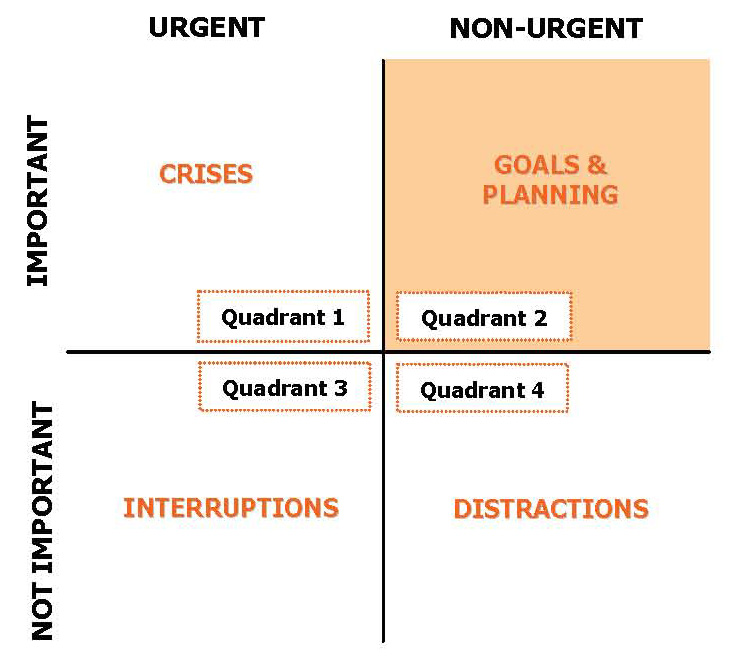topic: Time Management
Time management is an essential skill to master when tackling projects and working toward long-term goals. Planning out how to make the best use of time helps to increase productivity, efficiency, and overall effectiveness.
Types of Tasks
Important Tasks
- Contribute to long-term goals
- Are executed in a responsive mode
- Responsive mode: Calm, rational, open to new opportunities
Urgent Tasks
- Require immediate attention
- Places us in a reactive mode
- Reactive mode: Defensive, negative, hurried, narrow-minded
The Urgent Important Matrix

Quadrant 1 - Urgent and Important
- Can include tasks that have reached a point of crisis such as client complaints, deadlines, and urgent meetings
- Spend more time tackling Non-Urgent and Important tasks
Quadrant 2 - Non-Urgent and Important
- Tasks such as planning, team-building, and issue-prevention which help to achieve larger goals
- Invest most of time into tasks within this quadrant
Quadrant 3 - Urgent and Not Important
- Tasks that distrtact from larger, more important goals such as emails, meetings, or phone calls
- Spend least amount of time working on tasks from this quadrant
Quadrant 4 - Non-Urgent and Not Important
- Unproductive activities such as the use of social media, watching TV, or surfing the internet
- Remove these tasks in order to increase the time spent on other tasks
Time Management Strategies
Behaviors to Adopt
- Create a to-do list
- Set personal goals
- 1:3:5 Rule
- Prioritize tasks
- Work smarter, not harder
Behaviors to Avoid
- Procrastination
- Getting distracted from goals
- Taking on too much work
- Multitasking
- Forgetting to take breaks
Additional Resources to Review
- Time Management Skills: Definition and Examples
- Time Management Is About More Than Life Hacks
- 15 Time Management Tips for Achieving Your Goals